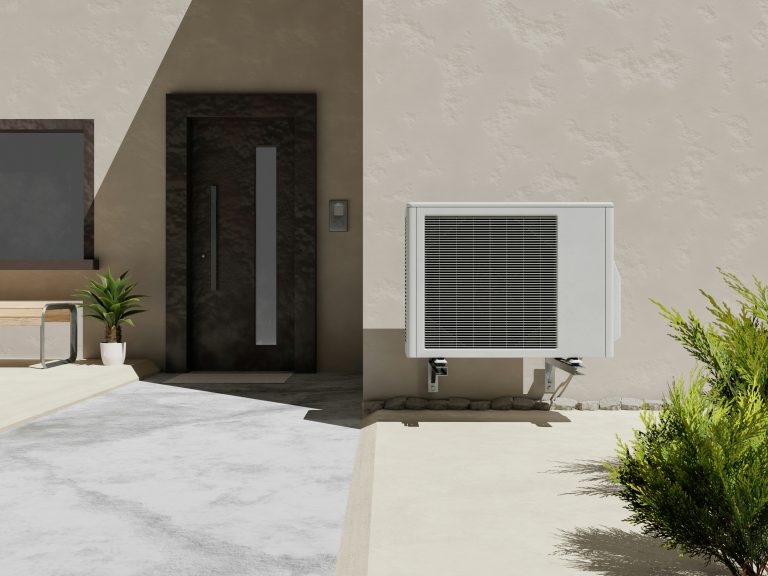As the world moves towards more sustainable energy solutions, air source heat pumps (ASHPs) have gained significant attention as an energy-efficient, eco-friendly alternative to traditional heating systems. For homeowners, they offer a multitude of benefits, ranging from reduced energy bills to a lower carbon footprint.
What Are Air Source Heat Pumps?
Air source heat pumps are innovative heating systems that extract heat from the outside air, even in cold weather and use it to heat your home and provide hot water. They work on the principle of heat exchange, similar to a refrigerator, but in reverse. These systems can also provide cooling during warmer months, making them a versatile solution for year-round comfort.
The Benefits of Air Source Heat Pumps for Homeowners
1. Reduced Energy Bills
One of the most appealing advantages of air source heat pumps is their potential to significantly lower energy costs. Unlike traditional boilers that rely on gas or oil, ASHPs use electricity to transfer heat from the outside air into your home. For every unit of electricity consumed, they can generate up to three units of heat, making them highly energy efficient.
By switching to an air source heat pump, homeowners can reduce their dependency on fossil fuels and take advantage of cheaper, renewable energy sources. Over time, this can lead to considerable savings on heating bills, especially for households transitioning from older, inefficient systems.
2. Environmentally Friendly and Sustainable
Air-source heat pumps (ASHPs) are a sustainable heating solution that aligns with the UK’s net-zero carbon targets. They utilise renewable energy from the air, reducing greenhouse gas emissions compared to traditional heating systems that burn fossil fuels. By adopting an ASHP, homeowners can proactively combat climate change and reduce their carbon footprint.
Additionally, when paired with renewable electricity sources, such as solar panels or wind energy, air source heat pumps can operate entirely on clean energy, enhancing their environmental credentials.
3. Versatile Heating and Cooling Solution
Unlike conventional heating systems, air source heat pumps offer heating and cooling capabilities. During the winter, they efficiently heat your home, while in the summer, they can reverse the process to provide cooling, acting as an air conditioning unit. This dual functionality makes them a cost-effective solution for maintaining a comfortable indoor environment throughout the year.
4. Low Maintenance and Long Lifespan
Air source heat pumps are relatively low maintenance compared to traditional boilers. Regular servicing, typically once a year, is sufficient to ensure the system operates efficiently. With proper care, an ASHP can last for 20 years or more, offering a reliable and long-term solution for heating and cooling.
5. Eligibility for Government Incentives
The UK government encourages homeowners to adopt renewable energy technologies, including air source heat pumps. Incentive schemes, such as the Boiler Upgrade Scheme (BUS), provide grants to help cover the cost of installation. These initiatives make ASHPs more affordable and accessible, enabling homeowners to invest in sustainable heating solutions with financial support.
6. Enhanced Home Comfort
Air source heat pumps provide consistent, even heating throughout the home. Unlike traditional systems that create hot and cold spots, ASHPs deliver a steady and comfortable indoor temperature. They work well with underfloor heating systems, further enhancing efficiency and comfort by evenly distributing heat.
7. Reduced Noise Levels
Modern air source heat pumps are designed to operate quietly, making them suitable for residential areas. Advances in technology mean that noise levels are comparable to or even lower than those of conventional boilers or air conditioning units, ensuring minimal disruption for homeowners and their neighbours.
Is an Air Source Heat Pump Right for Your Home?
While air source heat pumps offer many benefits, assessing whether they are suitable for your property is important. Factors such as insulation, the size of your home, and your existing heating system can influence the efficiency of an ASHP. Homes with good insulation and lower heat loss will benefit the most from this technology.
Additionally, the upfront installation cost can be higher than that of traditional systems, but the long-term savings on energy bills and government grants can offset this initial investment.


